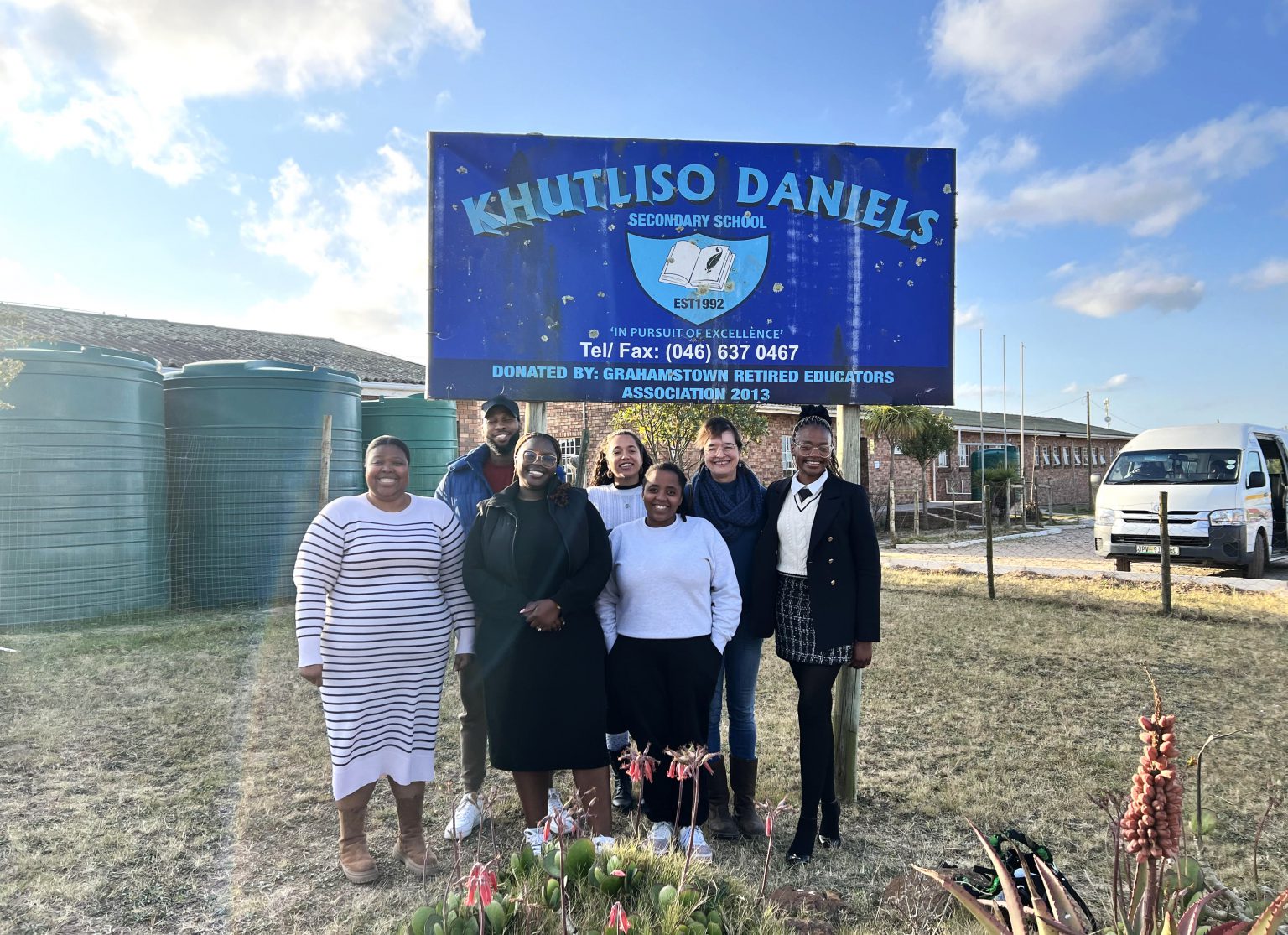By Samantha Carolus and Nicola Jearey Graham
A new project called the LO Support Participatory Action Research (LOSPAR) has been launched in Makhanda, South Africa, to improve Life Orientation (LO) education in schools.
Local schools, Rhodes University’s Critical Studies in Sexualities and Reproduction (CSSR) unit, the Community Engagement (CE) division and the Department of Psychology are all working together to make this happen.
LO teachers often deal with difficult issues like mental health and sexual health concerns, but they don’t get enough training or support for these roles. On top of that, LO is often treated as an unimportant subject.
This project aims to change this by giving teachers the tools and recognition they deserve.
LOSPAR is based on participatory action research, meaning that teachers and researchers work together to identify the problems to work on, collaborate to find solutions, research those solutions, and make fundamental changes.
This project started with a meeting of 35 LO and school management teachers from local schools, who shared their challenges and frustrations.
Many said LO isn’t taken seriously and is often given to teachers who don't care about the subject or don’t see the value it holds.
The project has now formed a working group with teachers as co-researchers alongside Rhodes University staff.
The team includes dedicated teachers such as Ms Anelisa Mfenyana from Holy Cross, Ms Lindokuhle Jawa and Mr Lungisa Ngesi from Khutliso Daniels, Miss Yondela Kalipa and Ms Bevuya Banisi from Victoria Girls High School, Ms Usivile Resha and Mr Xolisani Kondile from Ntsika, Rev Nomfusi Maleki from Ntaba Maria and Ms Shavonne Lynne Randall from Graeme College.
They are joined by Rhodes University staff and students, including Dr Nicola Jearey Graham (principal investigator), Professor Catriona Macleod, Professor Megan Campbell, Ms Nosi Nkwinti, Ms Samantha Carolus, Ms Sandisiwe Nabo-Bazana, and Ms Karabelo Ramosala.
Together, they are working to improve Life Orientation education in local schools.
The group will focus on planning specialised training for teachers, especially in basic counselling skills, the reporting of abuse, and the teaching of comprehensive sexuality education.
They will also advocate for LO to be more valued by school management teams and the Department of Basic Education.
This effort hopes to change how LO is seen in schools and provide better support for teachers and learners.
Are you an LO teacher or a School-based support team (SBST) teacher? Do you want to get involved? Do you have suggestions?
Contact Nicola at nicola.graham@ru.ac.za if you’d like to join the working group or offer
resources and ideas.


